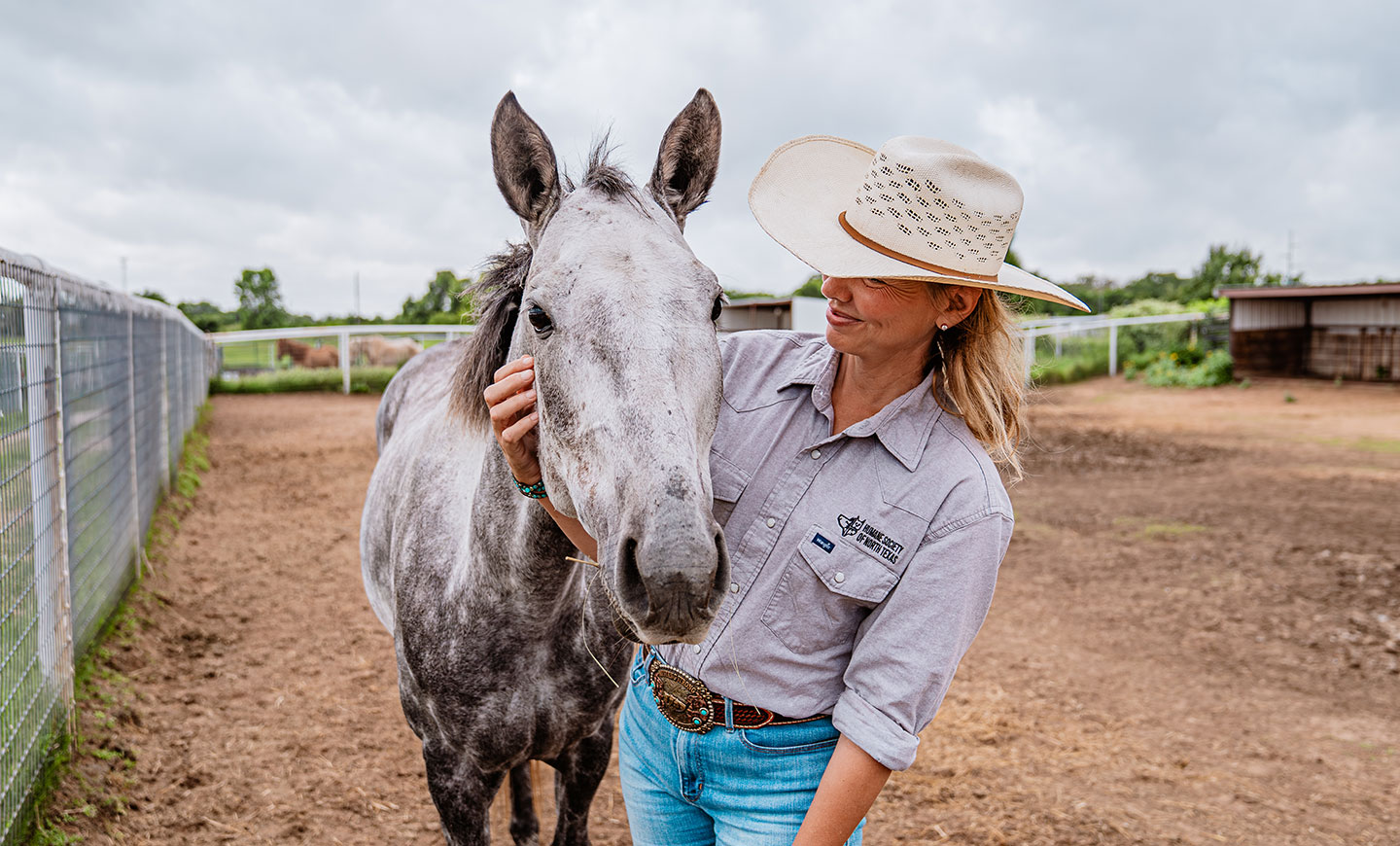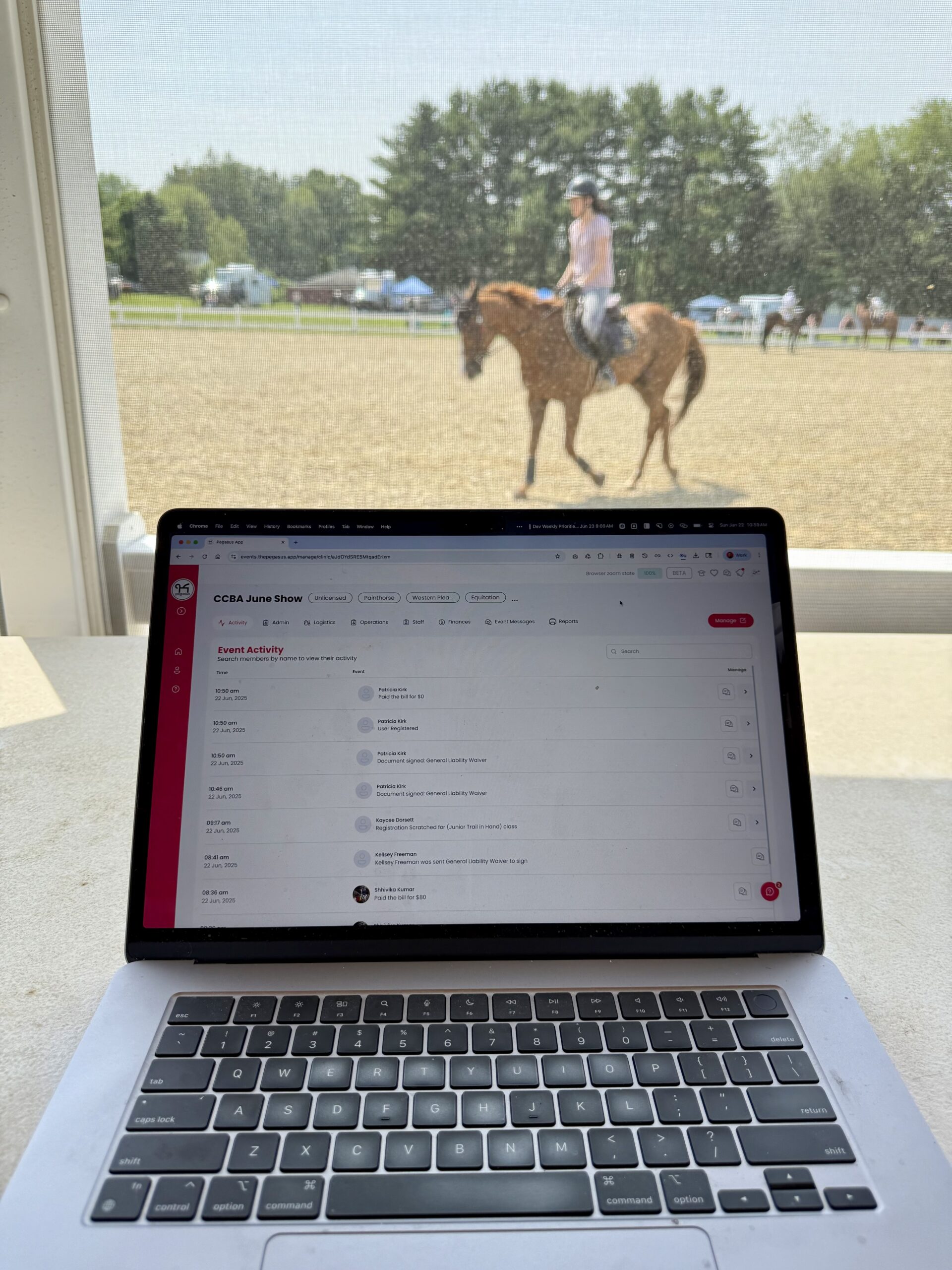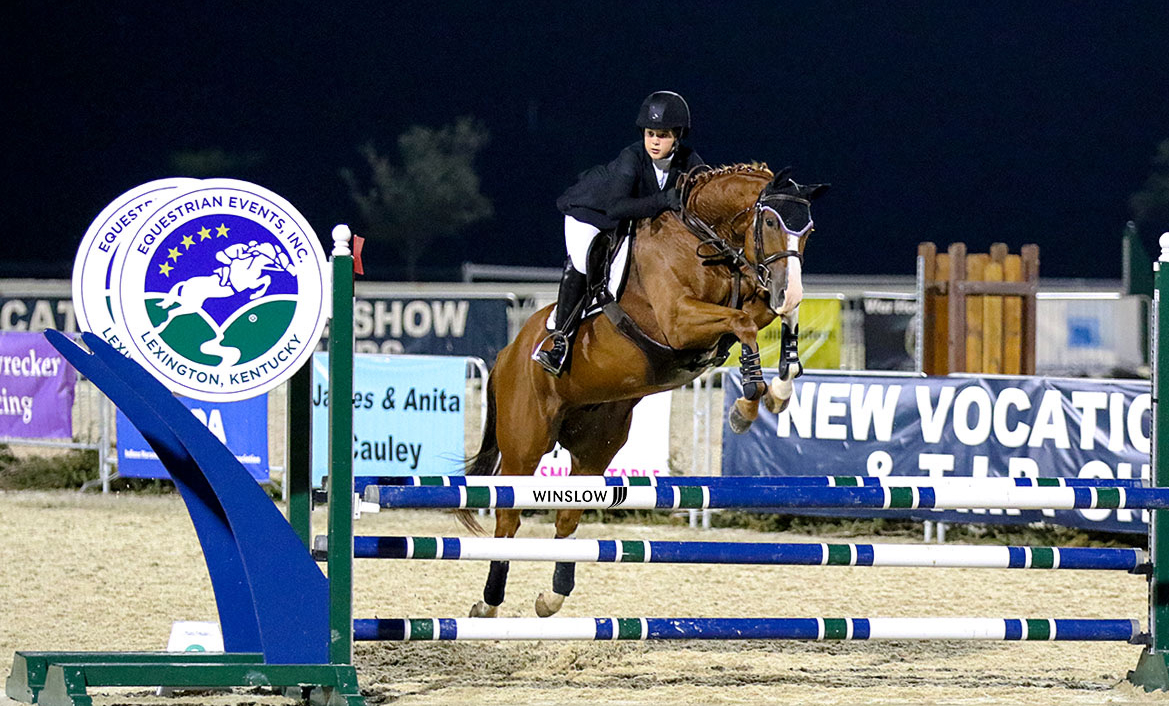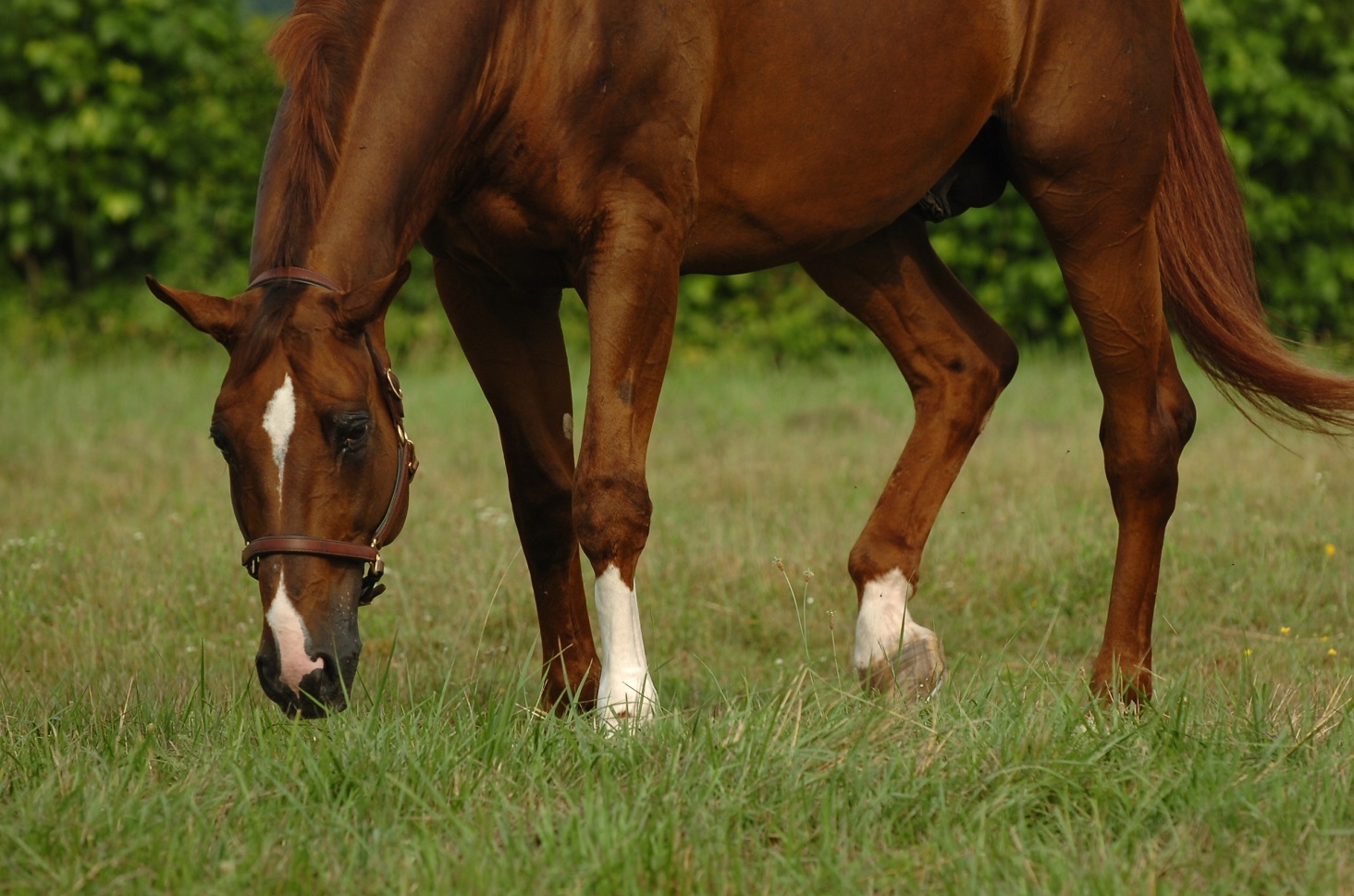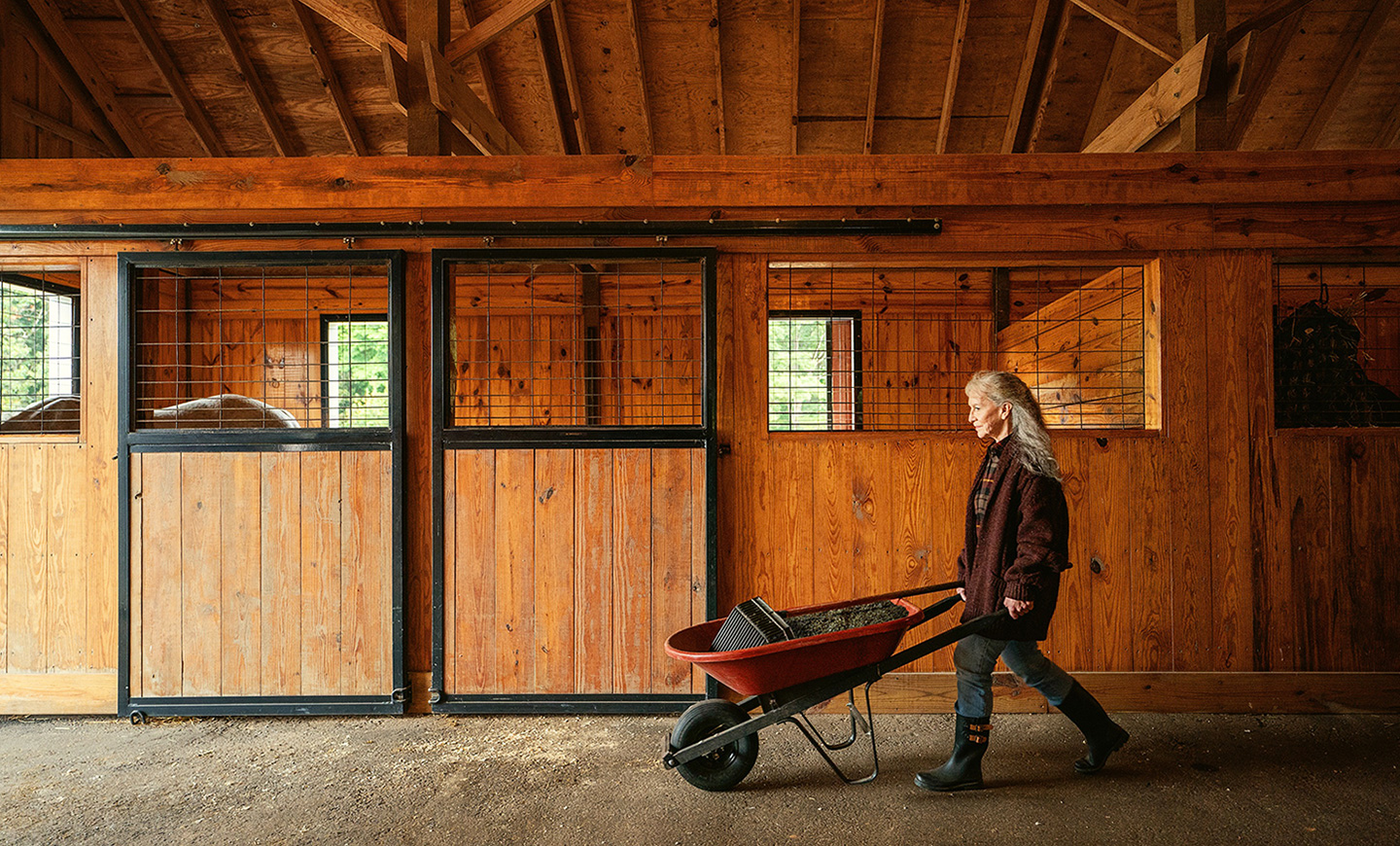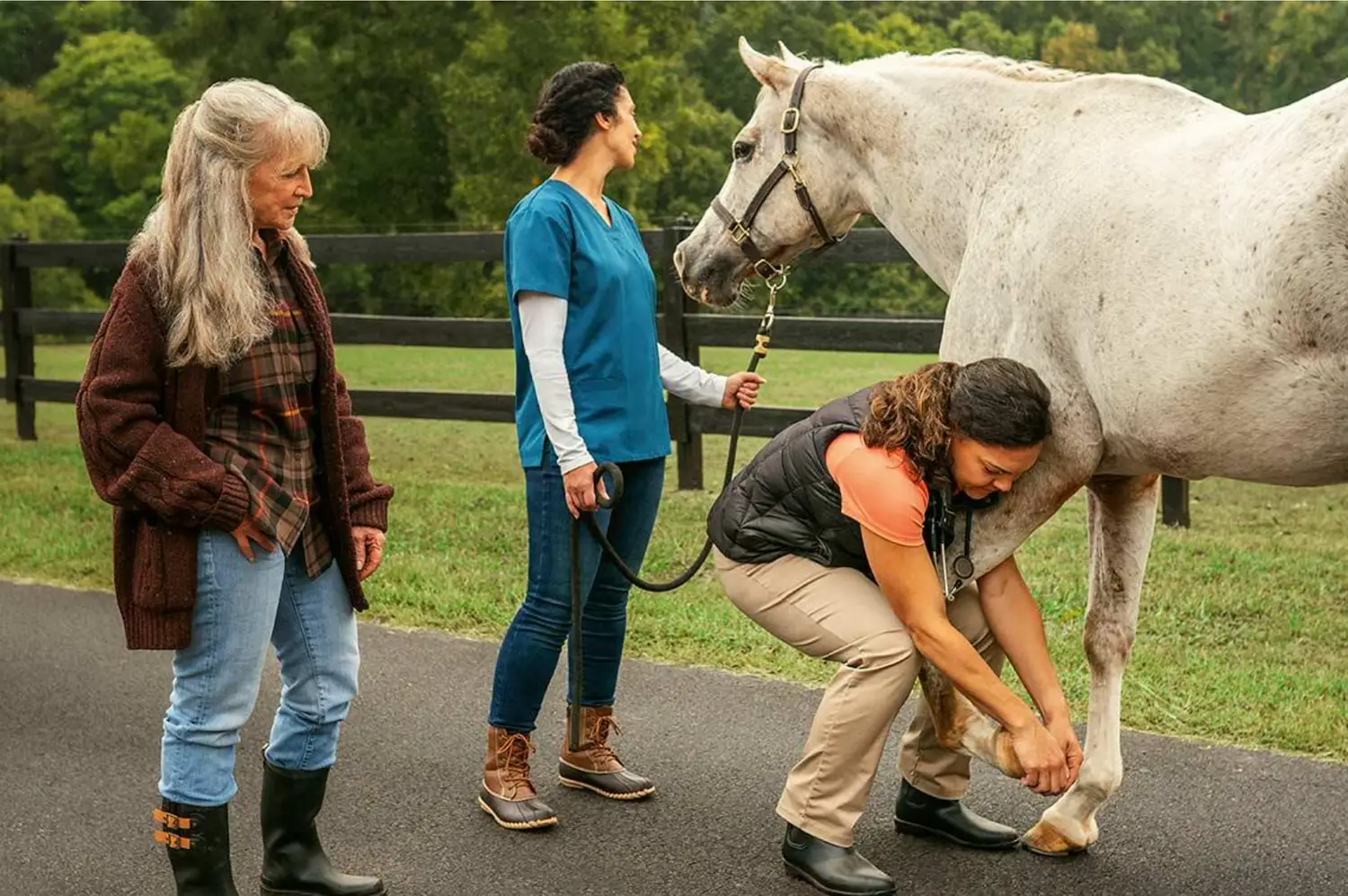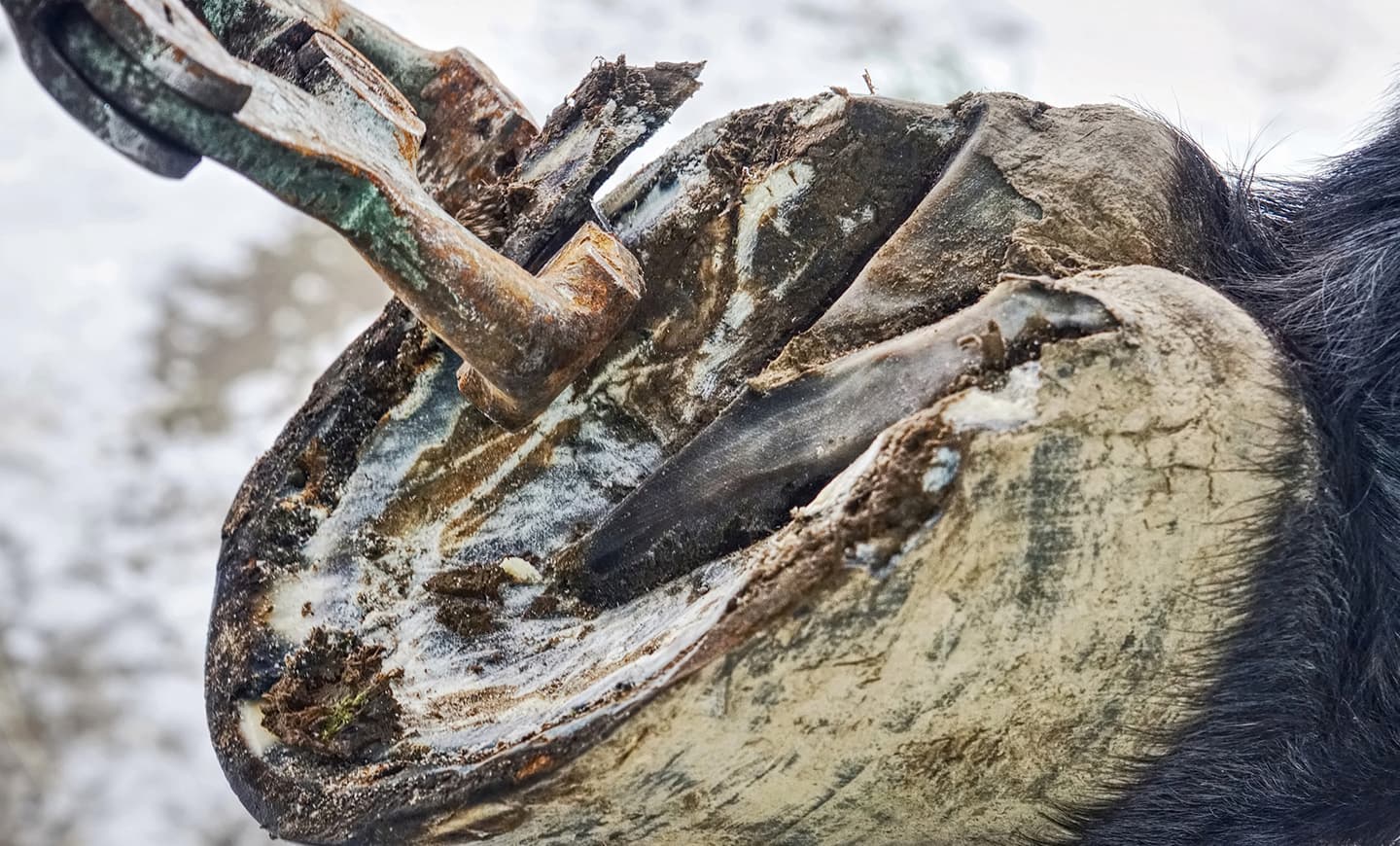
Hey there, partner. This is The Oxer by Pegasus. The newsletter that takes you out of your tack room and into the global equestrian industry.
This week, we published our podcast with Lucy Katan, the founder of three major organizations: the British Grooms Association (BGA), the Equestrian Employers Association (EEA), and most recently the International Grooms Association (IGA, along with her cofounder Courtney Carson, who we also interviewed on our podcast).
In today’s edition, we want to highlight the things we’ve learned talking to Lucy.
Before we get into it, have you signed up to try out Pegasus’s beta?
If not, head to Pegasus, click “get early access,” and sign up today!
Lucy Katan’s Career & Its Impact on Equestrian
It might be bold to say that one person’s career can make an enormous difference in an industry. It happens on rare occasions.
One of those rare occasions happens to be the career of Lucy Katan.
Before founding any of the associations, Lucy was a groom for many years and saw a lot of the problems that her associations would end up trying to solve.

There were two events Lucy attended as a groom that highlighted her inspiration for founding the British Grooms Association.
The first, a nonexample, was in Jerez, in southern Spain. According to Lucy, the only positive thing at the event was that they had a pool, otherwise, everything else was horrible for the grooms.
The grooms had to sleep in dormitory-styled accommodations that weren’t separated by gender, and they had to share the room with strangers sleeping in other bunk beds.
Essentially, a hostel.
The grooms who had to go through that did not feel that their belongings were safe.
The second event was soon after this one in Jerez, and it took place in Moscow, Russia. Antithetical to how they were treated in Spain, the grooms were treated like, well, athletes: they were wined (or “vodka-ed”), they were dined, and they were serenaded by the Moscow State Symphony Orchestra.
After that experience, Lucy knew that this was how you treat grooms.
Creating the BGA was the first of the three organizations she founded, and the point of the BGA was to create an organization to advocate for grooms and to fight for their issues.
Before the BGA, there wasn’t a single professional organization doing the same thing for grooms in the world.
The BGA’s existence also led to the founding of the Equestrian Employers Association, as those who employ grooms needed help learning how to better support the grooms.

As Sam mentioned on the show, it’s in the best interests of those who hire grooms to treat them well so they can retain their employment, as recruiting can be a nightmare.
Thankfully, the EEA exists to support employers’ efforts intended to support their grooms.
Finally, Lucy helped found the International Grooms Association to advocate for grooms who work on an FEI level.
Because of Lucy, grooms finally have a seat at the table with the biggest equestrian organization in the world, the FEI.
The Oxer
Subscribe to The Oxer on LinkedIn.
{% module_block module “widget_5fc69bad-e19b-4437-adf1-8521ba052d9b” %}{% module_attribute “button_link” is_json=”true” %}{% raw %}{“no_follow”:false,”open_in_new_tab”:true,”rel”:”noopener”,”sponsored”:false,”url”:{“content_id”:null,”href”:”https://www.linkedin.com/build-relation/newsletter-follow?entityUrn=7099778211101736961″,”type”:”EXTERNAL”},”user_generated_content”:false}{% endraw %}{% end_module_attribute %}{% module_attribute “button_text” is_json=”true” %}{% raw %}”Subscribe Now”{% endraw %}{% end_module_attribute %}{% module_attribute “child_css” is_json=”true” %}{% raw %}{}{% endraw %}{% end_module_attribute %}{% module_attribute “css” is_json=”true” %}{% raw %}{}{% endraw %}{% end_module_attribute %}{% module_attribute “definition_id” is_json=”true” %}{% raw %}null{% endraw %}{% end_module_attribute %}{% module_attribute “field_types” is_json=”true” %}{% raw %}{“add_icon”:”boolean”,”button_link”:”link”,”button_text”:”text”,”copy_to_clipboard”:”boolean”,”default_text”:”group”,”icon”:”group”,”styles”:”group”}{% endraw %}{% end_module_attribute %}{% module_attribute “label” is_json=”true” %}{% raw %}null{% endraw %}{% end_module_attribute %}{% module_attribute “module_id” is_json=”true” %}{% raw %}47160432274{% endraw %}{% end_module_attribute %}{% module_attribute “path” is_json=”true” %}{% raw %}”@hubspot/growth/modules/button”{% endraw %}{% end_module_attribute %}{% module_attribute “schema_version” is_json=”true” %}{% raw %}2{% endraw %}{% end_module_attribute %}{% module_attribute “smart_objects” is_json=”true” %}{% raw %}[]{% endraw %}{% end_module_attribute %}{% module_attribute “smart_type” is_json=”true” %}{% raw %}”NOT_SMART”{% endraw %}{% end_module_attribute %}{% module_attribute “styles” is_json=”true” %}{% raw %}{“alignment”:{“alignment”:{“css”:””,”horizontal_align”:”CENTER”}},”background”:{“color”:{“color”:”#f7074f”,”css”:”#f7074f”,”hex”:”#f7074f”,”opacity”:100,”rgb”:”rgb(247, 7, 79)”,”rgba”:”rgba(247, 7, 79, 1)”}},”border”:{“border”:{“bottom”:{“color”:”#f7074f”,”opacity”:100,”style”:”solid”,”width”:{“units”:”px”,”value”:1}},”css”:”border: 1px solid #f7074f;n”,”left”:{“color”:”#f7074f”,”opacity”:100,”style”:”solid”,”width”:{“units”:”px”,”value”:1}},”right”:{“color”:”#f7074f”,”opacity”:100,”style”:”solid”,”width”:{“units”:”px”,”value”:1}},”top”:{“color”:”#f7074f”,”opacity”:100,”style”:”solid”,”width”:{“units”:”px”,”value”:1}}}},”corner”:{“radius”:6},”text”:{“font”:{“size”:20,”styles”:{“font-style”:”normal”,”font-weight”:”bold”,”text-decoration”:”none”},”fallback”:null,”size_unit”:”px”,”css”:”font-size: 20px;font-weight: bold;”,”color”:null,”variant”:null,”font”:null,”style”:”font-style: normal; font-weight: bold; text-decoration: none”,”font_set”:”DEFAULT”}}}{% endraw %}{% end_module_attribute %}{% module_attribute “tag” is_json=”true” %}{% raw %}”module”{% endraw %}{% end_module_attribute %}{% module_attribute “type” is_json=”true” %}{% raw %}”module”{% endraw %}{% end_module_attribute %}{% module_attribute “wrap_field_tag” is_json=”true” %}{% raw %}”div”{% endraw %}{% end_module_attribute %}{% end_module_block %}
Why Do Grooms Get Treated the Way They Do?
A prevalent theme in our conversation was attempting to answer the question above.
Sam mentioned on the show that in other sports it’s vital for the athlete to be treated differently, more or less. It is they who have to sleep the full eight hours or more, it is they who have to train daily, and it is they who have to eat right.
Does that mean that those who are also vital to the athlete’s performance, in our case the grooms, should be treated any differently?
Lucy Katan doesn’t believe that.
She believes that grooms are treated the way they are due to culture and persistent beliefs.
“The athlete is perceived as a VIP. They often get access to VIP areas. They’re perceived as the most important people on the show grounds, and without them competing, you have no show. However, there are three other important people on the grounds. The first is the owner of that horse […] the next one is the horse […] and the last is the groom. Everybody’s a VIP, but the groom is the one that is not treated as such in so many circumstances.”
Lucy Katan
Lucy went on to describe a show she recently worked with on behalf of the IGA. The show’s change that was successfully implemented was that they opened the Riders Lounge to grooms, making it the “Riders and Grooms Lounge.”
Thanks to that change, the grooms now had access to better food and a place to relax and reset.
She told the director of the show how amazing it was that it took so many years to alter something that small, and he agreed.
Then they both wondered why it’s taken the FEI so long “for the grooms to have a voice at the top level of sport.”
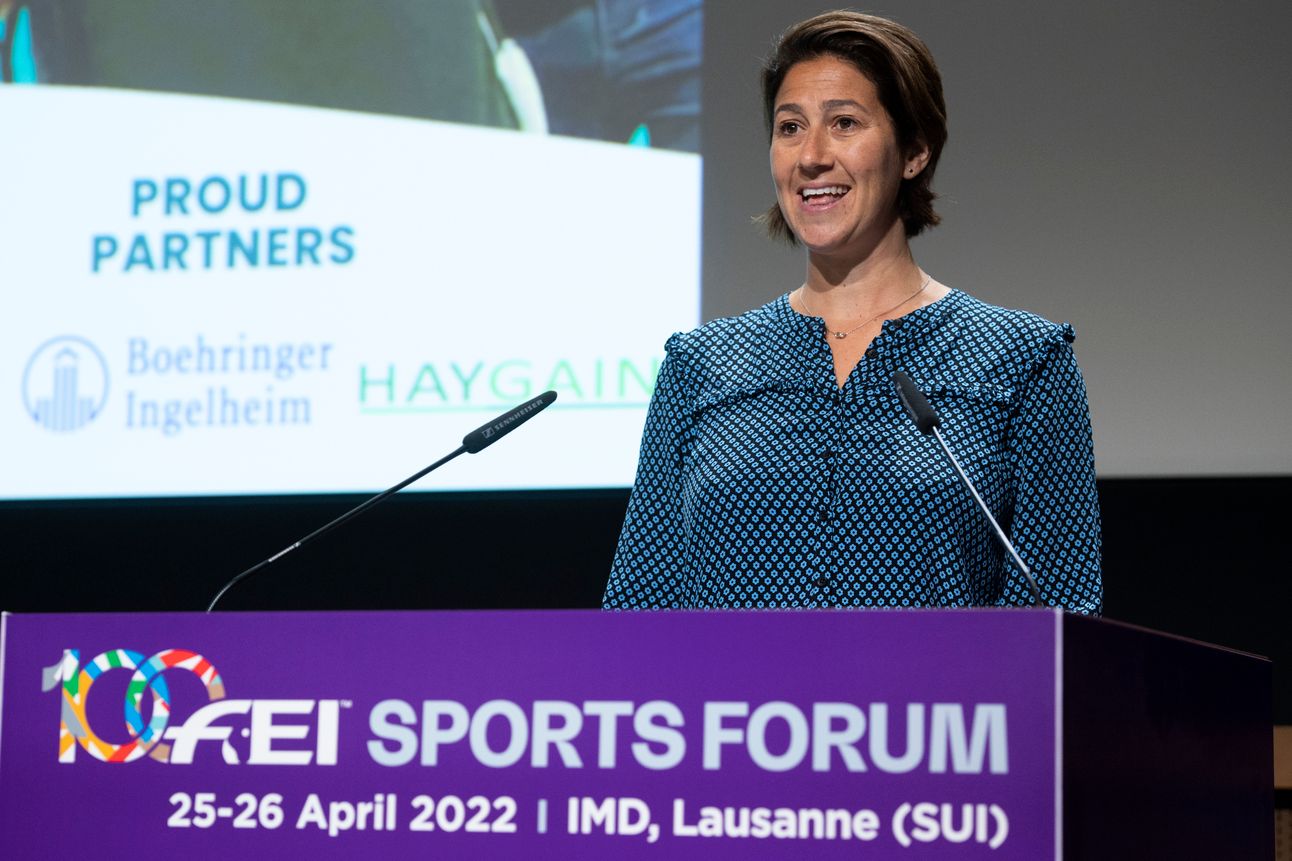
It is a big step from other things grooms have to go through, such as drinking water from a hose at a stable where you don’t know if the water is safe to drink or not.
Throughout the episode, a consensus was beginning to unfold, being that grooms aren’t always treated this way due to malicious intent. It’s perhaps more the case that since they have always been treated as such, there hasn’t been any organized effort until the BGA and IGA to fight on behalf of the grooms.
This is why the IGA and BGA are so important for the improvement of grooms’ conditions.
Whether or not the intention is malicious, the EEA and the BGA help grooms report to the British government of poor treatment they’ve received.
Nevertheless, according to a recent survey by the BGA, 55% of grooms in the UK do not have a written contract of employment.
Think about that for a second: more than half of grooms based in Britain do not have a written contract.
As Lucy pointed out on the show, why is it that employees at Pizza Hut and McDonald’s get written contracts, but grooms don’t?
Most industries in the world have written contracts, except for one of the world’s oldest professions: taking care of horses.
More than half of British-based grooms need a contract today, which means that they need to be members of the BGA to get advocacy.
Childhood Affluence May Have an Outsized Impact on the Groom Labor Market
A fascinating speculation Lucy made was the effect that childhood affluence has on today’s groom labor market.
During the 2008 global economic crisis, fewer people were able to ride horses, and the only ones who were able to were households that could afford it.
At the same time, according to Lucy, those higher-income households—the same ones that sent their children to go out and ride—encouraged their kids to seek highly skilled jobs when they grew up.
Simultaneously, being a groom is not exactly viewed by the parents as a highly-skilled job, like being a doctor or a lawyer.
Why Grooms Need Someone Advocating for Them with Lucy Katan – Pegasus Podcast
Our podcast with Lucy Katan, the founder of the British Grooms Association (BGA), the Equestrian Employers Association (EEA), and most recently the International Grooms Association (IGA).
pegasuspodcast.buzzsprout.com/1755973/14106248
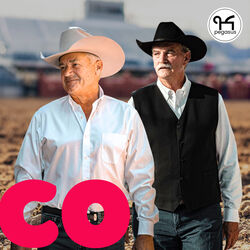
Although abuses and poor conditions occur in workplaces regardless of skill, it can be generally stated that highly-skilled professions have better working conditions and treatment for workers than lower-skilled ones.
At least that’s how the parents viewed it.
What happens, then, is that many grooms today don’t want to deal with such poor working conditions. So they burn out and quit.
Not only that, but some of them can even fall back on their parents if their career as a groom fails.
The ramifications of this are potentially disastrous. With many potentially lifelong grooms not wanting to deal with poor working conditions, their careers are cut into a handful of years. Fewer people are willing to be grooms.
This is why it’s so important to improve the working conditions of grooms. The labor market has higher expectations in 2023 than it did years before.
We’re appreciative of Lucy for taking the time to speak with us and we’re also appreciative of you for reading and supporting The Oxer by Pegasus and The Pegasus Podcast.
Once again, you can take a listen to the podcast on Spotify, Apple, or any platform of your choice.
Thanks,
The Pegasus Team
Note: All images of Lucy have been provided to us by her.

